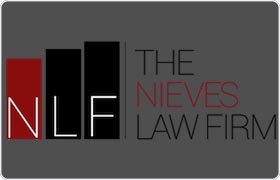San Francisco Juvenile Law Lawyer, California, page 3
Sponsored Law Firm
-
 x
x

Click For More Info:
-
The Nieves Law Firm, APC
505 14th St. Ste. 900 Oakland, CA 94612» view mapJuvenile Law We Take The Criminal Out Of Criminal Defense
The Nieves Law Firm, APC defends people charged with criminal and civil offenses throughout Alameda, Contra Costa, Marin, Solano and San Francisco counties.
800-338-6720
Tahra C Broderson
Juvenile Law, Other, Family Law, Federal Appellate Practice
Status: In Good Standing Licensed: 18 Years
Daniel J Wright
Computer Law, Juvenile Law, Felony, Business
Status: In Good Standing Licensed: 15 Years
Susan Ann Walsh
Health Care Other, Social Security, Juvenile Law, Criminal
Status: In Good Standing Licensed: 39 Years
Deepti Shikha Sethi
Domestic Violence & Neglect, Juvenile Law, DUI-DWI, Criminal
Status: In Good Standing
Meredith Faye Bergman
Lawsuit & Dispute, Industry Specialties, Family Law, Juvenile Law
Status: In Good Standing Licensed: 18 Years
Susan Elizabeth Ashcraft
Tax, Family Law, Divorce & Family Law, Juvenile Law
Status: In Good Standing Licensed: 39 Years
 Jo-Anna Nieves Oakland, CA
Jo-Anna Nieves Oakland, CA AboutThe Nieves Law Firm, APC
AboutThe Nieves Law Firm, APC Practice AreasExpertise
Practice AreasExpertise
